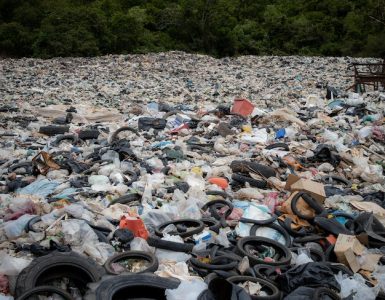The world is grappling with the environmental consequences of traditional packaging, more specifically plastic and expanded polystyrene (Styrofoam, Thermacol).
Plastic pollution has far-reaching ecological, economic, and health implications. As the harmful effects of plastics become increasingly evident and with the growing environmental consciousness amongst consumers, the demand for sustainable alternatives is soaring.
Plant-based packaging, derived from renewable resources like corn, sugarcane and potatoes, offers a promising solution to reduce plastic pollution and promote a circular economy.
While conventional packaging often relies on non-renewable resources, contributing to environmental degradation, plant-based packaging takes a more holistic approach.
Utilizing plant-derived materials, embodies the commitment to environmental responsibility, delivering a sustainable alternative that harmonizes with nature.
Benefits of Plant-Based Packaging
Plant-based packaging, crafted from renewable resources such as corn, sugarcane, and mushroom mycelium, offers a sustainable alternative to traditional fossil fuel-based materials. Designed to be protective and eco-friendly, these innovative packaging solutions degrade quickly and safely.
The benefits of plant-based packaging are multi-faceted, including environmental, social and economic factors.
Environmental Impact: Plant-based packaging reduces reliance on fossil fuels, conserving non-renewable resources. Its production process is often more energy-efficient and emits fewer greenhouse gasses, mitigating climate change and aligning with global sustainability goals.
Biodegradability: Unlike traditional plastics, plant-based packaging is biodegradable. It decomposes naturally, reducing plastic pollution and aligning with circular economy principles. This addresses the pressing issue of plastic waste and its harmful environmental impact.
Renewable resources: Plant-based packaging utilizes renewable resources like corn, sugarcane and potatoes. Unlike fossil fuel-based plastics, it ensures a sustainable supply chain and promotes regenerative agricultural practices.
Reduced carbon footprint: Plant-based packaging often has a lower carbon footprint due to the carbon sequestration properties of the crops involved.
Consumer Appeal: Plant-based packaging aligns with the growing consumer demand for sustainable products. It enhances brand image, fosters customer loyalty and provides a strategic advantage in a sustainability-driven market.
Types of Plant-Based Packaging
With the advancement of material science, several plant sources have emerged that provide alternatives to traditional fossil fuel-based packaging.
Bioplastics: These are a sustainable alternative to traditional petroleum-based plastics. Derived from renewable biomass sources like corn starch or sugarcane, they offer a lower carbon footprint. These polymers can be as durable as traditional plastics but break down under specific conditions. Polylactic Acid (PLA) and Polyhydroxyalkanoate (PHA) are two common types, used in various applications like packaging, food containers and medical equipment.
Cellulose: Cellulose-based materials, derived from plant sources like wood pulp and cotton, offer a sustainable packaging alternative. These biodegradable and renewable materials can be used in various forms, such as film, paperboard or coatings, providing a compostable and eco-friendly packaging solution.

Mushroom mycelium: Mushrooms are the best-known fungi and mycelium is the root network. The properties of mushroom mycelium offer a sustainable alternative to multiple applications, including packaging materials. By combining mycelia with agricultural residues, a natural composite material is formed, resembling synthetic foams like Styrofoam. This material is biodegradable, lightweight, durable and offers excellent insulation and flame-resistance properties.
Pulp and paperboard: Pulp and paperboard packaging is a common and sustainable option. It is made from either virgin or recycled pulp. Virgin pulp, sourced from wood or cotton, creates durable materials suitable for packaging items like greaseproof paper and rigid boxes. Recycled pulp, derived from waste paper products, is more environmentally friendly but less durable, often used for less sturdy items like french fry boxes. Moulded fibre packaging, made entirely from recycled paper, offers a sustainable and biodegradable solution.
Sugarcane bagasse: A byproduct of sugarcane production, sugarcane bagasse can be used to create various products like food service packaging, including plates, bowls and containers. Bagasse-based packaging is biodegradable, reduces energy consumption and minimizes pollution, making it an environmentally friendly choice.

Seaweed: Seaweed is a species of marine plants and algae that grow in the ocean, rivers and other water environments. The plant is more accessible than corn or sugar cane. Many companies have leveraged the properties of seaweed to create compostable packaging.
Coconut husk: Coconut husk commonly called coir is a natural fibre that can be used to create durable and sustainable packaging materials. This material is strong, lightweight and offers better performance than synthetic plastics.
Applications of Sustainable Packaging
The versatility of plant-based materials encompasses diverse industries, however, its applications can be extensively observed in the following industries:
Food and beverage industry: The food and beverage industry is embracing plant-based packaging for its sustainability benefits. Bioplastics offer a sustainable alternative to traditional plastics for packaging containers and wraps. Similarly, mycelium-based trays provide protective and customizable packaging for fresh produce, while starch-based materials offer biodegradable and eco-friendly food containers.
Retail and eCommerce sector: In the retail and e-commerce industry, sugarcane bagasse provides a sustainable alternative for disposable packaging, while starch-based materials offer eco-friendly solutions for parcel packaging. Furthermore, pulp-based packaging provides a sustainable option for product packaging.
Manufacturing and industrial applications: Beyond consumer goods, plant-based packaging is making inroads into manufacturing and industrial applications. Biodegradable packaging materials can be used for protective packaging in various industries. Additionally, mycelium-based packaging offers customized and biodegradable solutions for industrial applications, contributing to more sustainable manufacturing practices.
Challenges with Alternative Packaging
While plant-based packaging offers numerous environmental benefits, several challenges hinder its widespread adoption.
Limited recycling infrastructure for specific plant-based materials and contamination issues when mixed with traditional plastics pose significant obstacles. Additionally, the higher initial production costs of plant-based materials compared to traditional plastics can be a deterrent.
Durability concerns in certain applications, particularly under extreme conditions, may also limit the performance of plant-based materials. Furthermore, a lack of awareness about the benefits and availability of plant-based packaging can hinder consumer adoption. Finally, the need for improved composting facilities to handle plant-based materials effectively is crucial.
To overcome these challenges and accelerate the adoption of plant-based packaging, several strategies are necessary.
Investing in recycling infrastructure that can accommodate a wide range of plant-based materials is essential. Implementing financial incentives can encourage businesses to make the initial investment in plant-based packaging.
Furthermore, continued research and development efforts are crucial to enhance the durability and performance of plant-based materials. Additionally, collaborating with governments, private sectors and waste management authorities to raise awareness about the benefits can drive consumer demand.
Wrapping Up
Plant-based packaging is not merely a trend but a sustainable solution with the potential to revolutionize the packaging industry. By addressing the challenges and seizing the opportunities, businesses can embrace a more sustainable future and contribute to a healthier planet.






Add comment